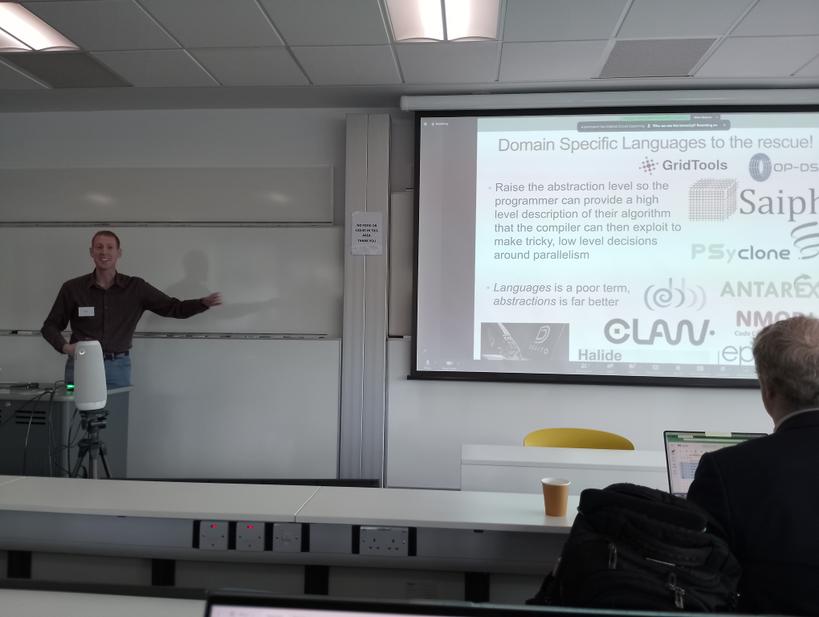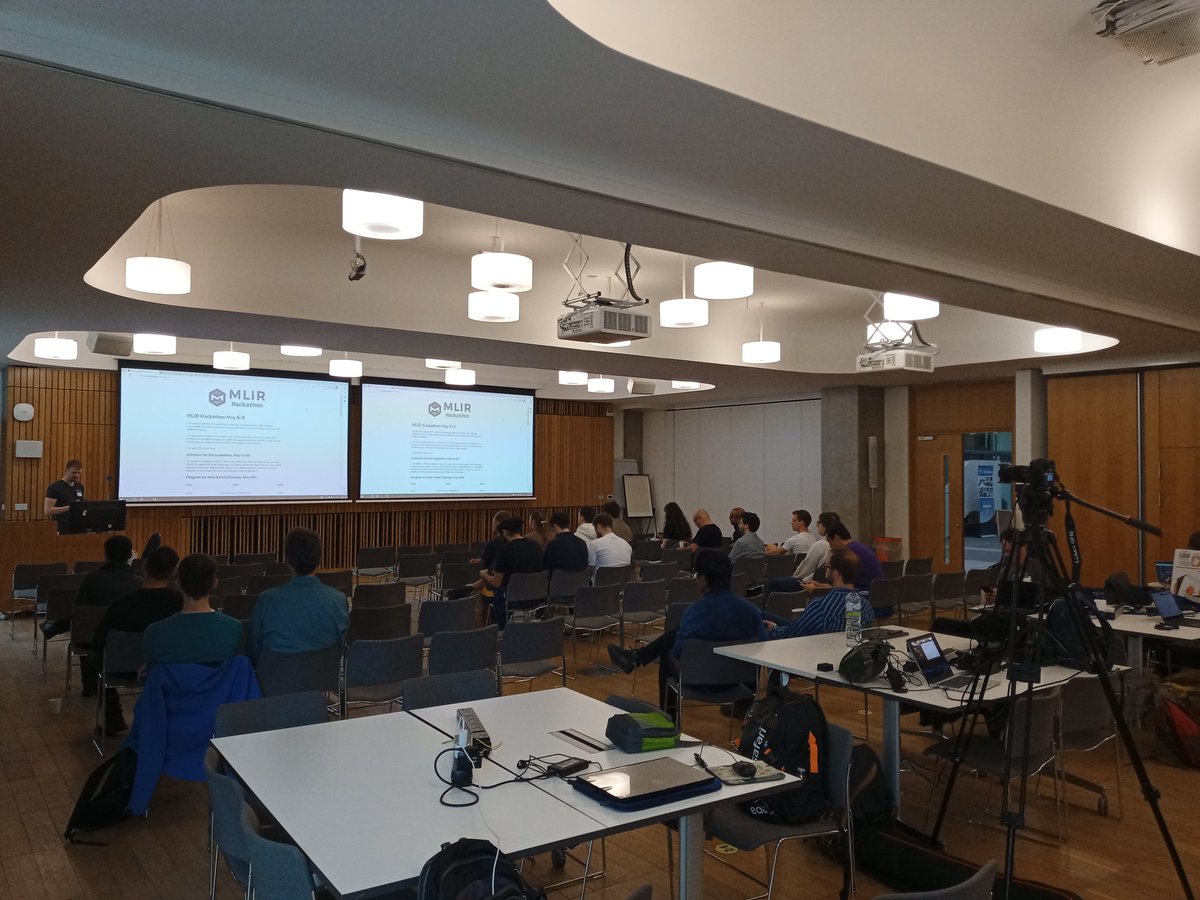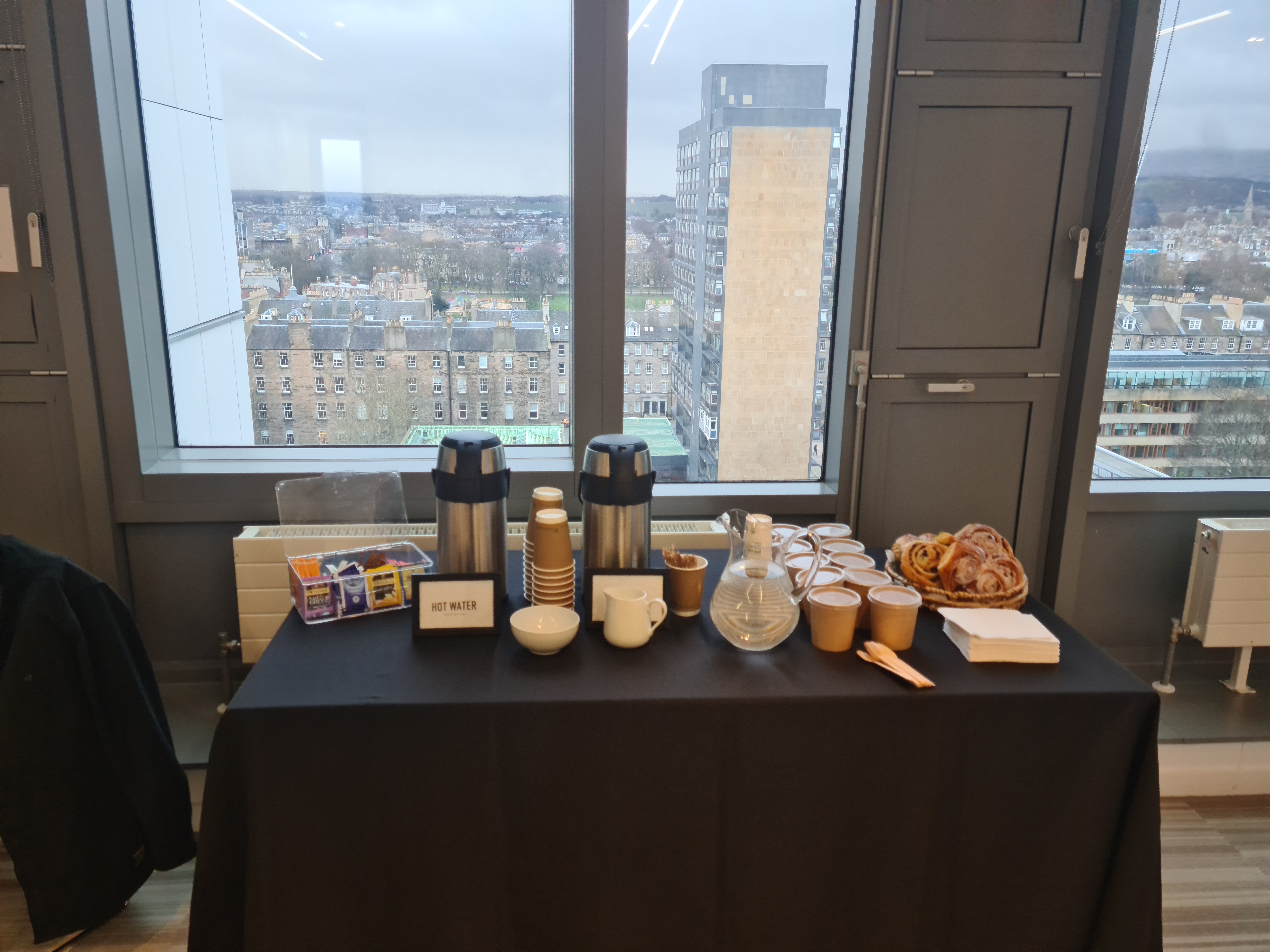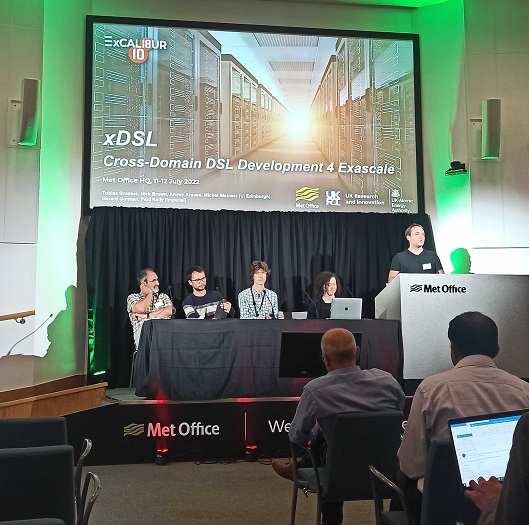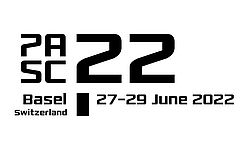Are you interested in Domain Specific Languages (DSLs), compilers, and HPC? If
so then come work at the School of Informatics, University of Edinburgh, where
you will be involved revolutionising the compiler stack for DSLs to develop a
common, unified, technology built on MLIR and LLVM.
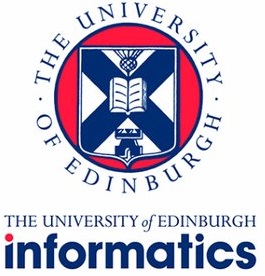
We are advertising for a Postdoctoral Research Associate in the Compiler and
Runtime Systems Group at the School of Informatics, University of Edinburgh, to
work on the xDSL project. The objective of xDSL is to revolutionize the design
of DSL compiler implementations by leveraging the breadth and cross-industry
support of the MLIR compiler and Python ecosystems. Python is the tool of choice
for application developers in many domains, such as machine learning, data
science, and - as we believe - an important component of the future of High
Performance Computing software.
Via this project the successful applicant will work together with the Python,
HPC, and MLIR compiler communities to build a next-generation DSL-design stack
that effectively connects these communities. Instead of building DSL compilers
as isolated monolithic towers, the purpose of our research is to design a
toolbox that enables developers to build DSLs using a rich ecosystem of shared
intermediate representations and optimizations.
xDSl is funded by ExCALIBUR, a large UK program to prepare key simulation codes
for exascale, and the successful candidate will have the opportunity to work
closely with world-leading experts in Compilers, Computational Science, and HPC
from academia and industry. We aim for high-impact publications at the top
venues in PL and Compilation (such as PLDI and CGO), Computational Science (such
as ICCS and ACM TOMS), as well as HPC (such as SC and ICS). The candidate will
directly contribute to open-source software that we develop in close
collaboration with the community.
Does this sound interesting, do you think you are a good match for working on
the xDSL project? If so, then there are further details
here.
Applications must be recieved by 5pm on the 5th of January 2022, and the link
also contains details about how to apply for this role.
